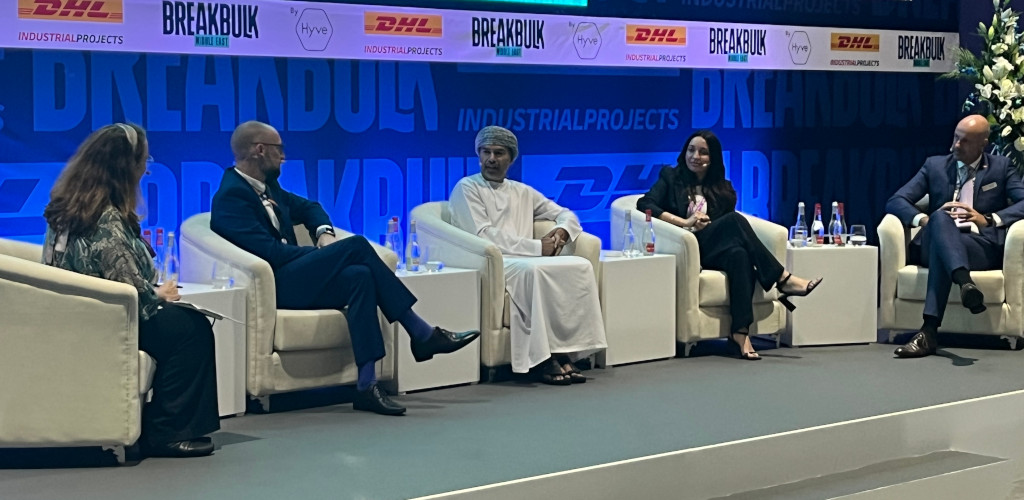Freight Rates, Tonnage Also a Priority for the Sector
 By Carly Fields
By Carly Fields
What do shippers want from their project cargo supply chains? More agility and resilience – that was the message that was delivered to an audience at The Balancing Act: Demand, Supply and Economy session at Breakbulk Middle East 2024.
Speaking as part of a panel discussion at the event in Dubai, Jamilya Garajayeva, logistics manager at Petrofac, said: “Resilience nowadays is becoming more and more important.” Petrofac has pulled back from long-term logistics contracts and some projects have switched to an ad hoc approach. “That’s where we have really changed our mindset,” she said.
Peter Dudas, head of global commercial and tendering strategy at DHL Industrial Projects, called for stability in the industry: “The direction is set, but we are hugely exposed to geopolitical issues. We have been talking about the ageing fleet for a number of years. The fundamental difference this year is the extra time ships are spending on the water. What we need as an industry is stability.”
Christopher Grammare, managing director at AAL Shipping, added sustainability to the industry wish-list, specifically on the ship supply side. “Freight rates have to be sustainable and predictable for everyone. We have to make sure there is sufficient tonnage and the right tonnage and focus on matching supply with demand.” The other side is taking on risk, he added.
“Reputable carriers try to contract nice and early, at least one year in advance. This is how far we plan, and this is where we can help to take some of the risk. We want to work more closely with EPCs and forwarders to create long term visibility.”
Regarding risk, DHL’s Dudas said he saw two distinct trends: the exodus from the traditional turnkey and lumpsum contracting, coupled with project owners wanting to take more control and visibility. “The key word is ‘control’,” he said. “We see some actors in the market wanting to control their own destiny and wanting to control and manage risks themselves.”
Meanwhile, the ongoing Red Sea issues are of particular concern for carrier AAL Shipping. Grammare described it as the main issue that everyone is talking about. “It is affecting carriers a lot,” he said. Rerouting to avoid the risk of attack is adding an extra 20 days to Middle East to Mediterranean routes.
“On supply chains that has a big impact and is effectively reducing the fleet.” As a result, the fleet is really tight now which has led to a freight rate increase directly linked to transiting issues.
Panelist Ahmed Al Abri, CEO of Asyad Port, noted that while the GCC region is not immune to major incidents – including the Ukraine war, the conflict in Gaza, and the Red Sea attacks on ships – there has been major expenditure across the region coupled with a drive for sustainable energy.
Garajayeva acknowledged that the supply chain has come face-to-face with many challenges over the past few years which created pressure on freight rates and added to supply chain bottlenecks. “For us as an EPC, we try to observe when freight rates will return to pre-pandemic levels. We do hope it will happen soon,” she said.
Breakbulk Middle East is on 12-13 February at the Dubai World Trade Center.


